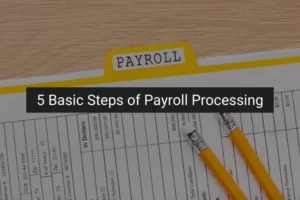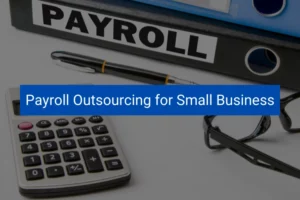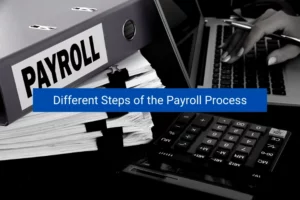Definition of Cash Flow?
The amount of cash and cash equivalents, such as securities, that a company generates or spends over a given time period is referred to as cash flow. The runway of a firm is determined by cash on hand and cash burn rate: the more cash on hand and the lower the cash burn rate, the more room a company has to maneuver and, in most cases, the higher its valuation.

Profit is not the same as cash flow. The money that flows in and out of your business is referred to as cash flow. Profit, on the other hand, is the money left over after all of your business expenses have been deducted from total revenue.
Cash Flow Management
The process of tracking how much money comes in and out of your business is known as cash flow management. This allows you to predict how much your company will have in the future. It also aids in determining how much money your company requires to cover debts such as paying staff and suppliers.
The term "cash flow" means the variation in the amount of money in your company from one point to another. Cash flow management is a system for monitoring and evaluating this flow. This allows you to identify trends, plan for the future, and deal with any income issues.
It's important to conduct cash flow management on a regular basis to ensure that your company stays afloat.
Decision-Making Process | Decision-Making Process in Different Functions Click Here>>>
The Basics of Cash Flow Management are critical because they ensure that you have enough, if not more, money to save for various purposes each month.
Here are a few straightforward strategies to help you manage your cash flow:
- For at least 3 - 6 months, track your present monthly expenses on a daily basis.
- Examine your monthly costs to determine where your money is spent.
- Make a list of the expenses where you can save money.
- Begin devoting 20-30% of your salary to paying yourself first. Put this money in a separate savings account that you will not use for anything other than investing.
- After you've done the preceding procedures, plan your monthly costs budget and make a list of all of your costs and budget for them. Make sure you stay on track with your budget and don't succumb to distractions. Make sure your monthly budgeted costs and intended savings do not exceed your monthly income.
- For any important or large purchase of more than USD$1000, you must plan ahead of time and guarantee that your buy is genuine and not made on the spur of the moment. As a result, you should keep track of the costs involved and set aside a fixed amount of money each month for a fund, only purchasing the item once your fund has amassed enough funds to cover the total cost.
With the information above, you should be able to save more money, which you may put into investments to help you reach financial independence or retirement.
Cash Flow Management in Business
Cash flow management is essential for any firm, no matter how big or small. Some may argue that this is primarily intended for small firms, yet it is applicable to all businesses. This mostly entails invoice factoring, which is a cost-effective way to secure funding for a firm without the need for any business loans. Companies that provide this service also make funds available for payroll, business expansion, and ordinary operational needs.

Invoice factoring is the practice of purchasing accounts receivable in order to obtain immediate cash. This gives firms the power to assure growth without lowering their equity or incurring debt. Financing firms that provide cash flow management check the bills presented and distribute funds without delay.
Why Team Building is Important for the Business? Click Here>>>
A solid cash flow management system can help you cut costs. Subcontracting credit and paperwork, as well as influencing their solid cash position, help to reduce actual expenses. This is largely accomplished by eliminating bad debt by relying on the financing company's credit assurance. Reduced collection and organizational operational costs are also good ways to achieve this goal. Suppliers may also provide you with monetary discounts.
Cash flow management can help you improve your financial status. Most organizations can benefit from invoice factoring for funding since it allows them to stay current and reduce the stress that comes with a tight cash flow. It also helps them improve their credit scores. This is accomplished by keeping up with both the dealers and the debtors. The dealers are given payment periods, which improves cash flow even further. Payroll obligations are simple to meet. This makes it easier to stay up to current on payroll taxes.
Benefits
It's easy to see why cash flow is so important to startups and small businesses. Your company's survival is dependent on cash flow. You won't be able to cover your monthly bills or even consider expanding your business if you don't have enough money flowing in the door.
However, proper cash flow management entails more than just having a steady supply of cash pouring in. It also allows you to prepare your company for the future. Here are a few more advantages of effective cash flow management.
1. You are not going to run out of money.
Without a doubt, this is the most significant benefit of good cash flow management. Keeping track of your cash flow will allow you to predict how much money you'll be bringing into your company and ensure that it's always more than you'll require.
2. You are able to pay your employees on time.
Your employees are the "front-liners" who assist you keep your business functioning, and competent personnel is often difficult to come by. As a result, paying your employees on time is not just the moral thing to do, but it's also good business.
You'll never have to worry about not being able to pay your employees on time if you have good cash flow management since you'll be able to set aside money for their remuneration on a regular basis.
3. You can order all the raw ingredients you require to complete your order.
Do you require baking flour to finish your pastry order? Or maybe some flavorings to put in your cold drinks? You can get a clear prediction of your account payables if you manage your cash flow appropriately. As a result, you'll be able to get the ingredients you require when you need them. You can even start thinking about increasing your product line once you've continuously maintained a solid cash flow.
4. You'll be stress-free.
Running out of money is the most stressful situation. Fortunately, if you manage your cash flow well, you won't have to worry about making ends meet since you'll have enough money in the bank to cover all of your responsibilities.
Who is Wealth Creator? Top Wealth Creators in India Click Here>>>
Stress levels that are higher than normal are not helpful for a busy entrepreneur like yourself. It can have a negative impact not just on the way you manage your business, but also on your employees and customers. You'll be able to manage your business more successfully and focus on the fun stuff if you have a favorable cash flow situation.
5. You can avoid spending too much.
You'll be guessing how much money you need to spend for each payable if you don't have a good cash flow management plan in place. This generally leads to overspending or, worse, spending money that was set aside for something else.
You will have more control over your money if you manage your cash flow correctly. Your spending will be controlled, and you may rest assured that you will have sufficient cash reserves to cover any unforeseen needs.
6. You can expand your company.
The majority of startup and small business owners simply want to see one thing: their company succeeds. A good cash flow management plan will keep you out of money, allowing you to keep saying yes to new business opportunities.
The ability to effectively manage your cash flow is critical to your company's success. You will be able to handle any deficiencies immediately, put your firm up for future growth, and have peace of mind that you will always be able to pay your obligations on time if you execute a sensible cash flow management strategy.
Mistakes to Avoid
Many of the cash-flow blunders we make in business and in our personal lives have less to do with how we THINK about money and more to do with how we FEEL about money. Keep reading if you don't want to cringe! You'll start to smile and nod because, no matter how sensible and comfortable you think you are with money, I'm confident you've already committed at least one of these mistakes.
1. Spending on the spur of the moment
Impulse spending manifests itself in a variety of ways. That networking event you're hosting, the trade show table you grabbed on the spur of the moment or the new computer you just got for the business. These three products appear to be necessities in the normal course of business, correct?
What is Payroll Processing | 5 Basic Steps in Processing Payroll Click Here>>>
They are, for the most part, but consider the computer purchase. You're asking how a computer can be an impulse purchase when you need it to run your business and your previous one just died. Yes, this is exactly why it's an impulse buy. A replacement budget and strategy should be in place for any mission-critical equipment in your company.
2. Using your bank balance to pay your bills
This is by far my favorite blunder, and it's arguably the most common among cash-strapped firms. This one is likewise linked to impulse purchases. The squeakiest wheel usually gets the check in this situation. You have someone in your office or on the phone demanding payment, so rather than risk a confrontation by stating, "No, I can't cut a check today, but I can get you one on Thursday," for example, you log into your online banking and verify that you have funds in the account before writing the check.
This is far worse than not paying the vendor on the due date. You've just demonstrated to the person on the other end that you're willing to put their needs ahead of your own. Consider how destructive this could be in the larger context of your relationship.
3. Extending credit to customers that aren't creditworthy
When you decide to give credit to your consumers, you are actually lending them money. Request that your customers fill out a credit application that includes trade and bank references. Make contact with those references to find out how much money they owe to merchants on credit. It's crucial to understand how much credit they're requesting from you and whether they've previously had equal levels of credit in good standing. Don't be scared to ask for financial statements if you're selling a high-ticket item.
4. Allowing your accounts receivables to age
You've given your customers credit, and now it's time to collect on the invoices. There are a variety of reasons why you haven't collected the money that is owed to you. You're busy, you don't want to be a bother, and you don't want to compromise your customer's next big deal. All of these reasons, or should I say excuses, are excellent opportunities to waste money.
It's just as important to keep up with your collections as it is to send your products on time. Allowing your clients to frequently pay you late teaches them that getting paid on time isn't important to you. Make sure you have a reliable system in place to collect payments from your consumers and keep them up to date.
5. Paying your merchants too soon
You want to have strong connections with your vendors, but the only time you should pay vendors early is if you receive a discount for doing so. Even then, you must consider the benefits and drawbacks of the deal to determine whether it is worthwhile to part with your money sooner than necessary. Maintaining a constant cash balance while paying your payments on time will benefit your firm in the long run, especially as you expand.
Phygital Strategies: 5 Examples of Phygital Experiences Click Here>>>
6. Inventory and supply replenishment
When goods sit on the shelf and cash is no longer available for other initiatives, incremental savings on bulk orders lose their value. In other words, you believe you're lowering your per-piece cost while boosting your gross profit margin. You have, however, used up all of your cash and are no longer able to act as swiftly on additional prospects.
You must decide whether the slight savings from buying in bulk are worth the inventory sitting on the shelf for an extended period of time. An inventory does not yield interest and, in most cases, depreciates in value over time.
7. Payroll costs are not under the control
It's all too tempting to let the days stretch on and on, gradually increasing the payroll. Payroll costs can rise as a result of a lack of strategy and focus. How long does it take your crew to regroup after a new fire breaks out?
A customer contact about a late order that causes everyone to rally to make the customer happy is significantly more expensive than preparing and sticking to a work schedule. Setting guidelines for how long work should take and having a "rule of thumb" for how long a task should take will help keep payroll costs consistent.
For Human Resource, Payroll and many more HR Services, visit our website https://lingueeglobal.com/



